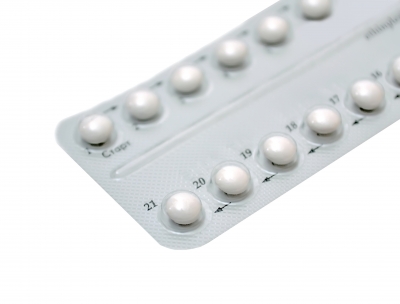Sometimes, female contraception/family planning options can be overwhelming. It’s important to discuss contraception options with your physician in order to determine which choice is the right one for your lifestyle. However, it’s equally important to be aware of the options that are available to you whether it’s your first time opting for contraception aside from using a condom or if you are interested in a long-term commitment to your choice of contraception. Below are some of the most common contraception options available for women that are also provided by the physicians of PGOMG:
“The Pill”, Birth Control
The pill is a highly common and popular contraception option for women. By combining estrogen and progestrogen (hormones), the pill prevents pregnancy by inhibiting the egg from leaving the ovaries as it normally would during ovulation. Without an egg, sperm cannot join anything to create a pregnancy. It is essential that women using the pill follow the directions listed on the packet and take the pill daily or its effectiveness is at risk. The pill has also been known to benefit women who suffer from difficult, painful periods.
Mirena IUD
The Mirena IUD is an intrauterine device that is placed into the uterus by a PGOMG physician who is trained to perform this procedure. The Mirena IUD releases progestin (hormone) into the uterus and this prevents pregnancy because progestin thickens a women’s cervical mucus and thins the lining of her uterus. This form of contraception can last up to five years and is very efficient at preventing pregnancy. Upon request, the Mirena IUD can be removed by a PGOMG physician if a woman wishes to try for a pregnancy.
Nexplanon
Nexplanon is a small implant that is inserted into a woman’s upper arm on the inside of the arm. Similar to the Mirena IUD, Nexplanon releases progestin (hormone) in order to prevent pregnancy. A Nexplanon implant can last for up to three years and is highly efficient at preventing pregnancy.
Sterilization Options
If you are interested in a permanent method of contraception then you need to be aware of the options available for sterilization. Sterilization can be surgical or non-surgical. One surgical sterilization option is tubal ligation, which is women a woman’s fallopian tubes are “tied”. Another option is Essure which is an in-office surgical procedure that facilitates a natural permanent barrier that will prevent pregnancy.
If you are interested in any of the above forms of contraception, or if you have general questions/concerns about your family planning options, be sure to contact your physician at PGOMG and he or she will be happy to discuss these options for you and help choose a form of contraception that best suits you.


